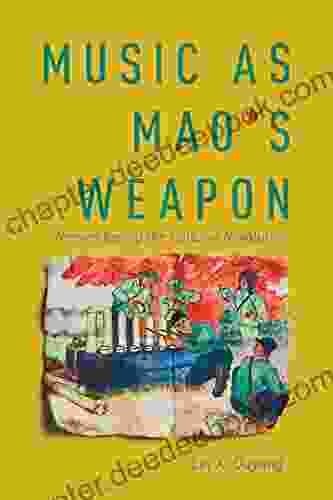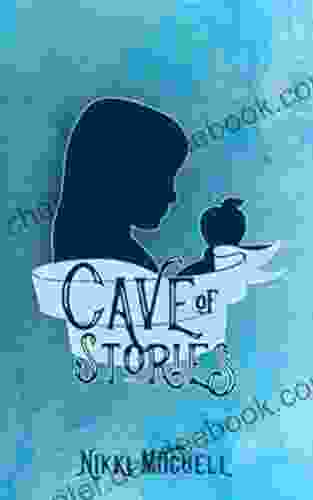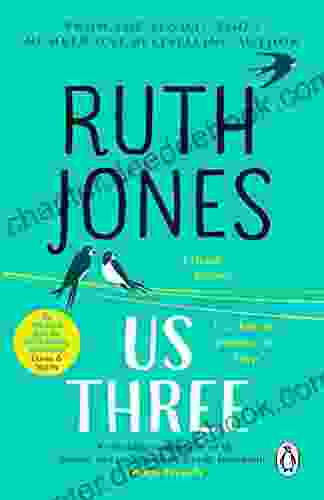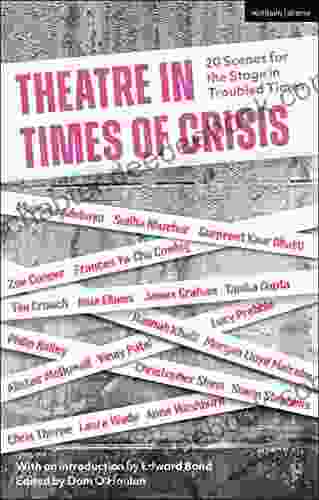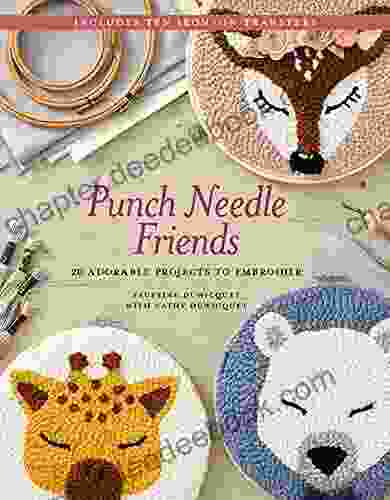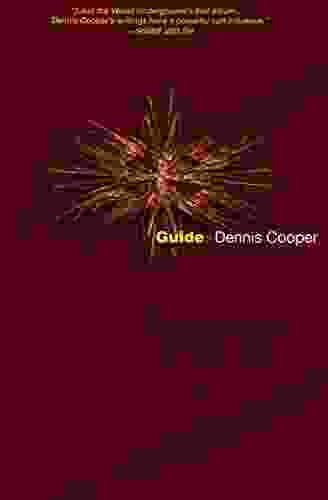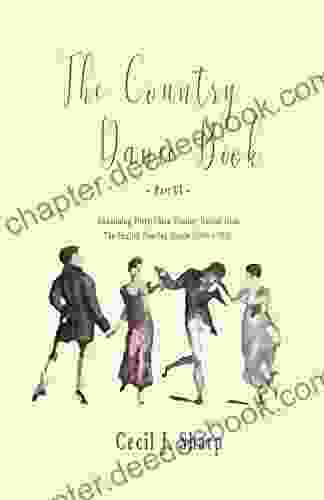Music as Mao's Weapon: The Political and Cultural Impact of Revolutionary Music in China

Music has long played a central role in shaping cultures and influencing societies. In the annals of human history, countless examples abound of the use of music as a potent force for political mobilization, social cohesion, and cultural expression.
5 out of 5
| Language | : | English |
| File size | : | 21912 KB |
| Text-to-Speech | : | Enabled |
| Enhanced typesetting | : | Enabled |
| Word Wise | : | Enabled |
| Print length | : | 304 pages |
| Screen Reader | : | Supported |
During the Mao era in China, from the 1940s to the 1970s, the Communist Party under the leadership of Chairman Mao Zedong recognized the immense power of music as a tool to propagate revolutionary ideals, mobilize the masses, and consolidate the regime's authority. Revolutionary music, characterized by its stirring melodies, simple lyrics, and themes of struggle, became an integral part of the Maoist political and cultural landscape.
The Origins and Development of Revolutionary Music
The origins of revolutionary music in China can be traced back to the early 20th century, when a new generation of Chinese intellectuals and artists began to embrace Western musical forms and incorporate them into their expressions of Chinese nationalism and anti-imperialism.
In the 1930s, as the Chinese Communist Party (CCP) engaged in a protracted struggle against the Nationalist government, music played an increasingly significant role in mobilizing peasants and workers. Songs such as "The Internationale" and "The East is Red" became popular among communists and their supporters.
After the CCP's victory in 1949 and the establishment of the People's Republic of China, revolutionary music entered a new phase of development. Mao Zedong, the charismatic leader of the CCP, recognized the potential of music to further his political goals. He believed that music should be simple, accessible, and in line with the principles of revolutionary socialism.
The Cultural Revolution and the Rise of Revolutionary Music
The Cultural Revolution (1966-1976),a radical socio-political movement initiated by Mao Zedong, marked a turning point in the development of revolutionary music in China. During this period, all forms of "bourgeois" art and culture were purged, and revolutionary music became the dominant cultural expression.
The "Eight Model Operas," sanctioned by Mao, epitomized the revolutionary aesthetic. These operas, with their simplistic plots, predictable characters, and didactic messages, glorified the Communist Party, demonized its enemies, and reinforced the Maoist ideology.
Revolutionary music became ubiquitous during the Cultural Revolution. It was performed in schools, factories, and public spaces, and it was broadcast over radio and television. Music was used to inspire mass participation in political campaigns, denounce class enemies, and evoke a sense of revolutionary fervor.
The Political and Social Impact of Revolutionary Music
Revolutionary music served multiple political and social functions during the Mao era:
- **Political Indoctrination:** The lyrics of revolutionary songs were carefully crafted to convey Maoist ideology and promote communist values. They celebrated the CCP, extolled the virtues of socialism, and vilified China's enemies.
- **Mass Mobilization:** Revolutionary music played a vital role in mobilizing the Chinese people for political campaigns and economic development. Songs such as "The East is Red" and "My High Aspirations" inspired peasants and workers to participate in mass movements, such as the Great Leap Forward and the Cultural Revolution.
- **Social Control:** Revolutionary music was used as a tool of social control, reinforcing the norms and values of the Maoist state. It promoted conformity, discouraged dissent, and created a pervasive sense of revolutionary vigilance.
- **Cultural Transformation:** Revolutionary music contributed to a profound cultural transformation of Chinese society. It replaced traditional forms of Chinese music and introduced new modes of musical expression that reflected the socialist ideals of the CCP.
Legacy and Impact
The legacy of revolutionary music in China is complex and multifaceted. Revolutionary music played a pivotal role in shaping the political and cultural landscape of China during the Mao era, leaving an indelible imprint on Chinese society.
Today, some of the songs from this era are still popular and evoke nostalgia for the period. However, there is also a critical reassessment of the use of music for political manipulation and indoctrination.
Music remains a powerful force in Chinese society, and the legacy of revolutionary music continues to influence contemporary musical expressions and political discourse.
Music played a profound role in the political and cultural landscape of China during the Mao era. Revolutionary music, with its stirring melodies and evocative lyrics, became a potent tool for mobilizing the masses, spreading Maoist ideology, and consolidating the regime's authority. It contributed to a profound cultural transformation of Chinese society but also left a complex legacy that is still being debated and reassessed today.
5 out of 5
| Language | : | English |
| File size | : | 21912 KB |
| Text-to-Speech | : | Enabled |
| Enhanced typesetting | : | Enabled |
| Word Wise | : | Enabled |
| Print length | : | 304 pages |
| Screen Reader | : | Supported |
Do you want to contribute by writing guest posts on this blog?
Please contact us and send us a resume of previous articles that you have written.
 Novel
Novel Page
Page Chapter
Chapter Library
Library Paperback
Paperback E-book
E-book Magazine
Magazine Newspaper
Newspaper Paragraph
Paragraph Shelf
Shelf Synopsis
Synopsis Annotation
Annotation Manuscript
Manuscript Scroll
Scroll Codex
Codex Tome
Tome Classics
Classics Autobiography
Autobiography Memoir
Memoir Reference
Reference Encyclopedia
Encyclopedia Dictionary
Dictionary Thesaurus
Thesaurus Narrator
Narrator Character
Character Librarian
Librarian Card Catalog
Card Catalog Borrowing
Borrowing Periodicals
Periodicals Scholarly
Scholarly Lending
Lending Reserve
Reserve Journals
Journals Rare Books
Rare Books Interlibrary
Interlibrary Study Group
Study Group Thesis
Thesis Storytelling
Storytelling Theory
Theory Textbooks
Textbooks Ingrid Lee
Ingrid Lee Lisa Morgan
Lisa Morgan Wendy Knight
Wendy Knight John A Van De Walle
John A Van De Walle Michael Khan
Michael Khan Kathe Hicks Albrecht
Kathe Hicks Albrecht Gary Thorne
Gary Thorne Jax Burrows
Jax Burrows Dick Porter
Dick Porter Dennis Hastert
Dennis Hastert Greg Margolis
Greg Margolis Olga Gre
Olga Gre Spencer Coffman
Spencer Coffman Jim Gold
Jim Gold Norman Douglas
Norman Douglas Karsinova
Karsinova Rivera Sun
Rivera Sun Marie Bo
Marie Bo David Battino
David Battino Steve Ashton
Steve Ashton
Light bulbAdvertise smarter! Our strategic ad space ensures maximum exposure. Reserve your spot today!
 Dan BrownFollow ·14.3k
Dan BrownFollow ·14.3k Howard BlairFollow ·2.4k
Howard BlairFollow ·2.4k Isaias BlairFollow ·11.1k
Isaias BlairFollow ·11.1k Cason CoxFollow ·13.5k
Cason CoxFollow ·13.5k Gavin MitchellFollow ·13k
Gavin MitchellFollow ·13k Carlos DrummondFollow ·13.7k
Carlos DrummondFollow ·13.7k Robert ReedFollow ·9.3k
Robert ReedFollow ·9.3k Jarrett BlairFollow ·6.8k
Jarrett BlairFollow ·6.8k
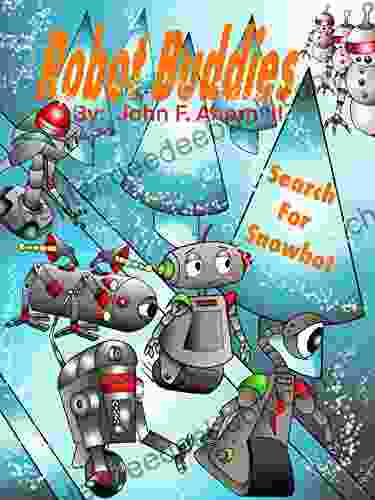
 F. Scott Fitzgerald
F. Scott FitzgeraldRobot Buddies: Search For Snowbot
In the realm of...

 Mario Vargas Llosa
Mario Vargas LlosaUnlocking Academic Success: A Comprehensive Guide to...
In the ever-challenging academic...

 Gabriel Blair
Gabriel BlairMake $000 Per Month Selling Your YouTube Freelancing...
Are you looking for a...
5 out of 5
| Language | : | English |
| File size | : | 21912 KB |
| Text-to-Speech | : | Enabled |
| Enhanced typesetting | : | Enabled |
| Word Wise | : | Enabled |
| Print length | : | 304 pages |
| Screen Reader | : | Supported |


